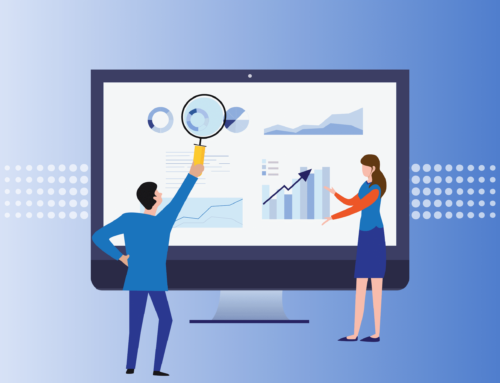The healthcare industry is ever-evolving in multiple ways, from adopting the latest technology to protecting patient privacy with a focus on compliance. Healthcare leaders must find ways to ensure everyone on their team is on board and up to date with training and certifications, which is why the healthcare learning management system (LMS) has become such a vital tool.
Traditional training methods have increasingly proven inefficient and ineffective at meeting the growing demands of healthcare professionals. LMS software has become a powerful strategic resource for top healthcare organizations.
What is a Learning Management System for Healthcare?
An LMS for healthcare is a SaaS training platform for healthcare employees that has become essential for handling the growing use of technology and all its complexities and challenges.
Initially designed for colleges and other educational institutions, LMSs were primed and ready to be tailored to the dynamic needs of healthcare organizations. An LMS provides a centralized dashboard of training materials, making it easier for health professionals to stay current on training on their own time and terms without falling behind.
The best learning management systems for healthcare provide tools to manage administrative and automation tasks and deliver learning and development modules and training programs.
The Increasing Reliance on Healthcare Learning Management System Vendors
Healthcare is among the most heavily regulated industries, so leaders must ensure that everyone understands their part and remains compliant.
Educating employees about all relevant regulations, policies, laws, and best practices is essential to the organization’s health. These considerations affect various matters within the specific health organization or the industry as a whole and include the following:
- Workplace safety, such as OSHA for healthcare facilities
- Anti-harassment
- HIPAA and data privacy
- Diversity and inclusion matters
Key Benefits of Implementing an LMS in Healthcare
Many health organizations have adopted learning management systems for compliance in recent years, thanks to the many benefits.
Centralized Training Content
Consider all the moving parts of developing multiple training programs for different areas. You would encounter one silo after another, engaging in time-wasting attempts at communicating with other busy professionals. A main advantage of using an LMS in healthcare is the centralization of training content.
With an LMS, all educational materials, compliance documents, and policies are stored in one location, accessible by staff across the organization. This aggregation not only simplifies the management of training materials but also ensures consistency and timeliness of the disseminated information.
Scalable Training Solutions
An LMS offers scalable training solutions, allowing healthcare organizations to customize and expand their training programs easily. Whether it’s onboarding new employees, providing continuous education, or updating staff on the latest compliance regulations, an LMS can accommodate the dynamic needs of a healthcare workforce.
Progress Tracking and Reporting
With a learning management system for healthcare, administrators can effortlessly track and report on their staff’s training progress. This feature enables organizations to track completion rates, assess participant comprehension through quizzes and evaluations, and identify areas where additional training is necessary.
Certification and Attestation Management
Another significant benefit is the system’s ability to automate the issuance of certificates and the storage of attestations. This ensures that records are easily accessible for auditing purposes and reduces the administrative burden of maintaining such records.
Features to Look for in a Healthcare LMS
When selecting the best learning management systems for healthcare, these key features are vital:
- A user-friendly interface ensures that staff of all technological skill levels can easily navigate the system
- Integration capabilities that allow the LMS to connect with other software systems, seamlessly enhancing operational efficiency
- Customization and flexibility to tailor the system to specific training needs
- Strong security measures to protect sensitive data for patients, employees, and the public







